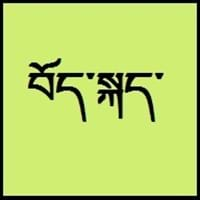Sundanese vs Tibetan
- The Sundanese language is second most widely spoken regional language in Indonesia.
- Tibetan dialects vary alot, so it's difficult for tibetans to understand each other if they are not from same area.
- Tibetan is tonal with six tones in all: short low, long low, high falling, low falling, short high, long high.
Sundanese and Tibetan Language History
Comparison of Sundanese vs Tibetan language history gives us differences between origin of Sundanese and Tibetan language. History of Sundanese language states that this language originated in 5th century AD whereas history of Tibetan language states that this language originated in c. 650. Family of the language also forms a part of history of that language. More on language families of these languages can be found out on Sundanese and Tibetan Language History.
Sundanese and Tibetan Greetings
People around the world use different languages to interact with each other. Even if we cannot communicate fluently in any language, it will always be beneficial to know about some of the common greetings or phrases from that language. This is where Sundanese and Tibetan greetings helps you to understand basic phrases in Sundanese and Tibetan language. Sundanese word for "Hello" is Halo or Tibetan word for "Thank You" is ཐུགས་རྗེ་ཆེ་། (tujay-chay). Find more of such common Sundanese Greetings and Tibetan Greetings. These greetings will help you to be more confident when conversing with natives that speak these languages.
Sundanese vs Tibetan Difficulty
The Sundanese vs Tibetan difficulty level basically depends on the number of Sundanese Alphabets and Tibetan Alphabets. Also the number of vowels and consonants in the language plays an important role in deciding the difficulty level of that language. The important points to be considered when we compare Sundanese and Tibetan are the origin, speaking countries, language family, different greetings, speaking population of these languages. Want to know in Sundanese and Tibetan, which language is harder to learn? Time required to learn Sundanese is Not Available while to learn Tibetan time required is 24 weeks.





